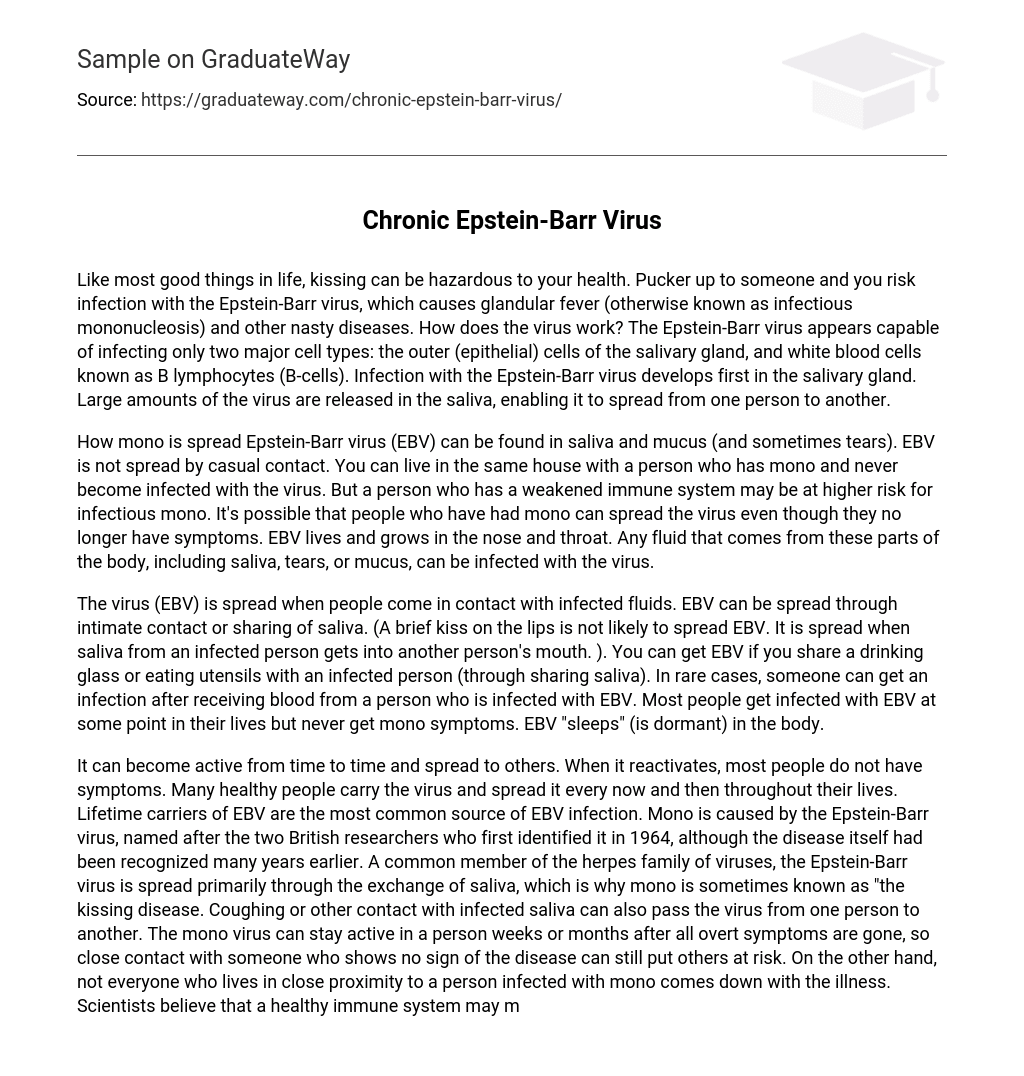Like most good things in life, kissing can be hazardous to your health. Pucker up to someone and you risk infection with the Epstein-Barr virus, which causes glandular fever (otherwise known as infectious mononucleosis) and other nasty diseases. How does the virus work? The Epstein-Barr virus appears capable of infecting only two major cell types: the outer (epithelial) cells of the salivary gland, and white blood cells known as B lymphocytes (B-cells). Infection with the Epstein-Barr virus develops first in the salivary gland. Large amounts of the virus are released in the saliva, enabling it to spread from one person to another.
How mono is spread Epstein-Barr virus (EBV) can be found in saliva and mucus (and sometimes tears). EBV is not spread by casual contact. You can live in the same house with a person who has mono and never become infected with the virus. But a person who has a weakened immune system may be at higher risk for infectious mono. It’s possible that people who have had mono can spread the virus even though they no longer have symptoms. EBV lives and grows in the nose and throat. Any fluid that comes from these parts of the body, including saliva, tears, or mucus, can be infected with the virus.
The virus (EBV) is spread when people come in contact with infected fluids. EBV can be spread through intimate contact or sharing of saliva. (A brief kiss on the lips is not likely to spread EBV. It is spread when saliva from an infected person gets into another person’s mouth. ). You can get EBV if you share a drinking glass or eating utensils with an infected person (through sharing saliva). In rare cases, someone can get an infection after receiving blood from a person who is infected with EBV. Most people get infected with EBV at some point in their lives but never get mono symptoms. EBV “sleeps” (is dormant) in the body.
It can become active from time to time and spread to others. When it reactivates, most people do not have symptoms. Many healthy people carry the virus and spread it every now and then throughout their lives. Lifetime carriers of EBV are the most common source of EBV infection. Mono is caused by the Epstein-Barr virus, named after the two British researchers who first identified it in 1964, although the disease itself had been recognized many years earlier. A common member of the herpes family of viruses, the Epstein-Barr virus is spread primarily through the exchange of saliva, which is why mono is sometimes known as “the kissing disease. Coughing or other contact with infected saliva can also pass the virus from one person to another. The mono virus can stay active in a person weeks or months after all overt symptoms are gone, so close contact with someone who shows no sign of the disease can still put others at risk. On the other hand, not everyone who lives in close proximity to a person infected with mono comes down with the illness. Scientists believe that a healthy immune system may make it possible to fight off the infection successfully.





